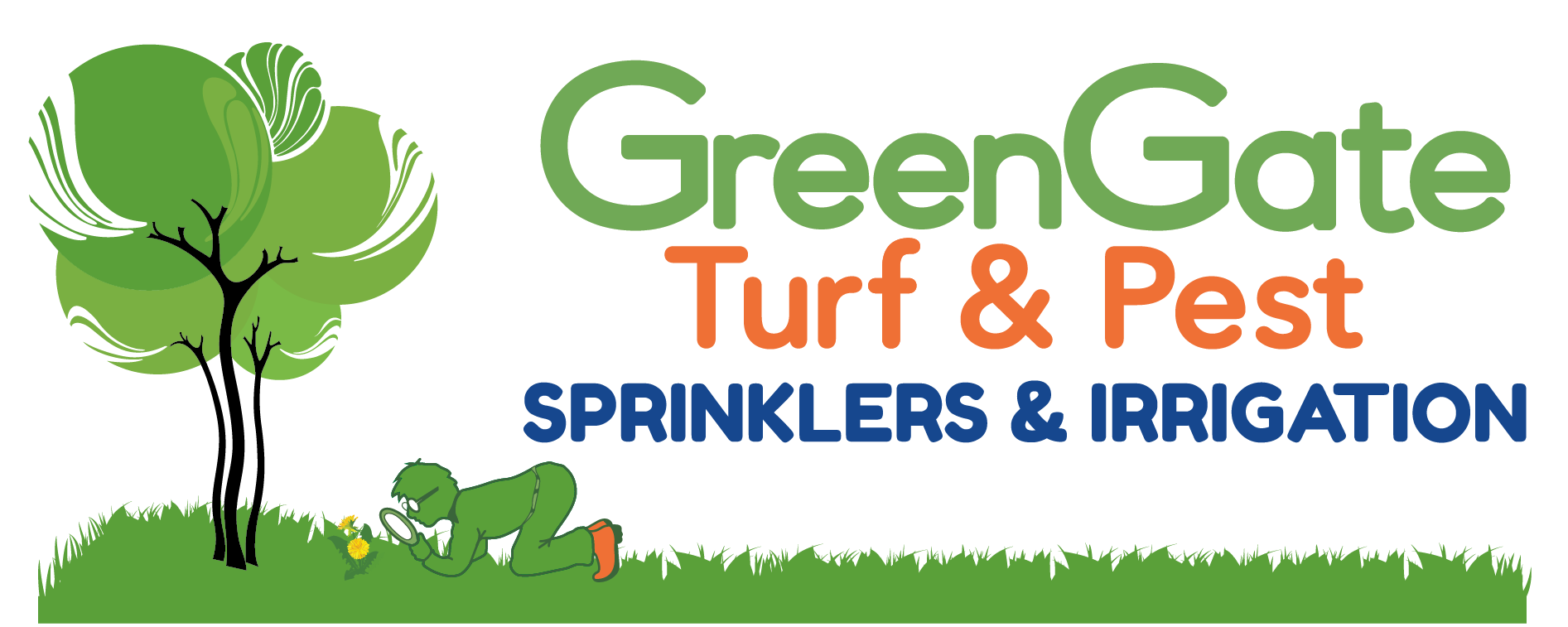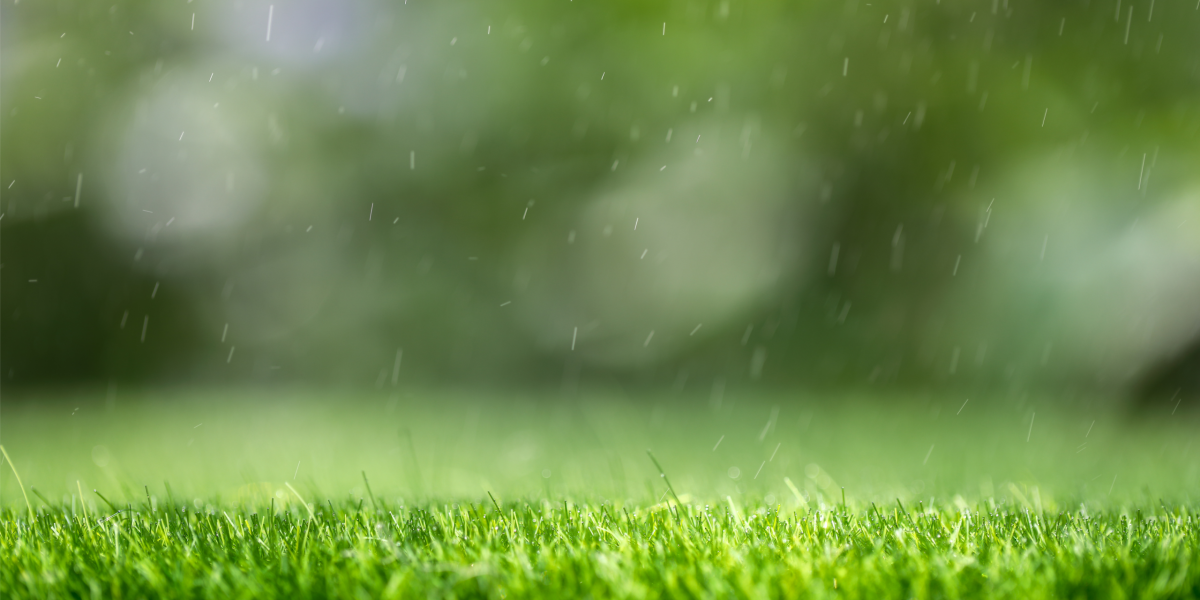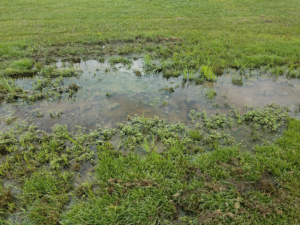Rain can be a blessing for your lawn, especially in a city like Houston, where the weather is often hot and humid. However, while rain can nourish your grass and keep it looking lush, too much of it can cause problems. Understanding the impact of rain on your lawn can help you maintain a healthy, vibrant yard throughout the year.
The Positive Impact of Rain On Your Lawn
-
Natural Hydration
-
- Rain provides natural hydration, essential for your lawn’s growth. Unlike tap water, rainwater is free of salts, chemicals, and other additives that can sometimes accumulate in the soil over time. The natural balance of nutrients in rain helps to keep your grass healthy.
-
-
Nutrient-Rich Water
-
- Rainwater often contains nitrogen, which is a key nutrient that promotes green, healthy grass. When it rains, nitrogen is absorbed into the soil, helping to nourish your lawn and encourage growth.
-
-
Cooling Effect
-
-
In Houston’s intense heat, rain has a significant impact by cooling both the air and soil, which helps reduce heat stress on your grass. This cooling effect is especially beneficial during scorching summer months, as it keeps your lawn green and resilient despite high temperatures. By moderating the heat, rain helps maintain your lawn’s health and vibrancy throughout the hot season.
-
-
-
Deep Watering
-
- A steady, gentle rain can penetrate deep into the soil, encouraging the roots of your grass to grow deeper. Deep-rooted grass is more drought-resistant and can better withstand periods of dry weather.
-
The Negative Impact of Rain On Your Lawn
-
Overwatering Issues
-
- While rain is essential, too much of it can lead to overwatering, which can suffocate your grass’s roots. In Houston, heavy rainstorms can sometimes lead to waterlogged soil, preventing oxygen from reaching the roots and causing the grass to become weak and susceptible to disease.
-
-
Fungal Growth
-
- Excessive moisture from frequent or prolonged rain can have a negative impact by promoting fungal growth. Fungal diseases such as brown patch or dollar spot thrive in wet conditions, which are common in Houston. These diseases can spread quickly, damaging your lawn and requiring careful treatment.
-
-
Weed Growth
-
- Rain can also encourage the growth of weeds. In a wet, nutrient-rich environment, weeds can thrive and outcompete your grass for resources. Without proper lawn maintenance, weeds can quickly take over, leading to an unsightly and unhealthy yard.
- GreenGate’s Lawn Bundles tackle weeds, insects, and fungus year-round so you don’t have to!
-
-
Soil Erosion
-
- Heavy rain can lead to soil erosion, especially on sloped lawns. Erosion can wash away the topsoil, which contains essential nutrients for your grass. Over time, this can weaken your lawn and make it harder for grass to grow.
-
Tips for Managing the Impact of Rain on Your Lawn
-
Aerate Regularly
-
- Liquid aeration helps mitigate the negative impact of rain by improving soil drainage and preventing waterlogging. Unlike traditional aeration, which uses physical perforation, liquid aeration uses a special solution to enhance soil structure, allowing rainwater to penetrate deeper and reducing surface pooling. This method prevents root suffocation and maintains balanced moisture levels, promoting healthier grass and a more resilient lawn despite heavy or frequent rainfall.
- Liquid Aeration is recommended two times per year to prevent and break up compacted soil.
-
-
Monitor Weather Patterns
-
- Keep an eye on the weather forecast, especially during Houston’s rainy season. Adjust your lawn care routine accordingly, such as reducing supplemental watering.
- Hunter Irrigation offers weather-monitoring controllers that will do the hard work for you!
-
-
Fertilize Wisely
-
- Fertilizing your lawn with a balanced fertilizer can counteract some of the negative impacts of rain by promoting healthy grass growth and preventing weeds and diseases.
-
-
Weed Control
-
-
Implementing a strong weed control strategy is essential for managing the impact of rain on weed growth. Frequent rain creates perfect conditions for weeds to flourish, as moisture and warmth speed up their germination and spread. Without effective measures like regular mowing, mulching, and pre-emergent herbicides, weeds can quickly outcompete your grass, leading to bare patches and a weakened lawn. By staying proactive, you can mitigate the negative impact of rain and keep your lawn healthy and weed-free.
-
-
- Improve Drainage
-
- Improving your lawn’s drainage system is key to preventing the negative impacts of rainwater pooling, which can damage your grass by suffocating roots and promoting disease. Proper drainage ensures that excess water is efficiently redirected, protecting your lawn from erosion and nutrient loss, and helping it stay healthy and vibrant even during heavy rains.
-
The impact of rain on your Houston lawn can be both beneficial and detrimental. By understanding how rain impacts your lawn, you can take proactive steps to harness the positive effects while mitigating the negatives. With regular maintenance, proper drainage, and vigilant monitoring, you can ensure that your lawn remains lush, green, and healthy throughout the year, no matter how much rain falls.










